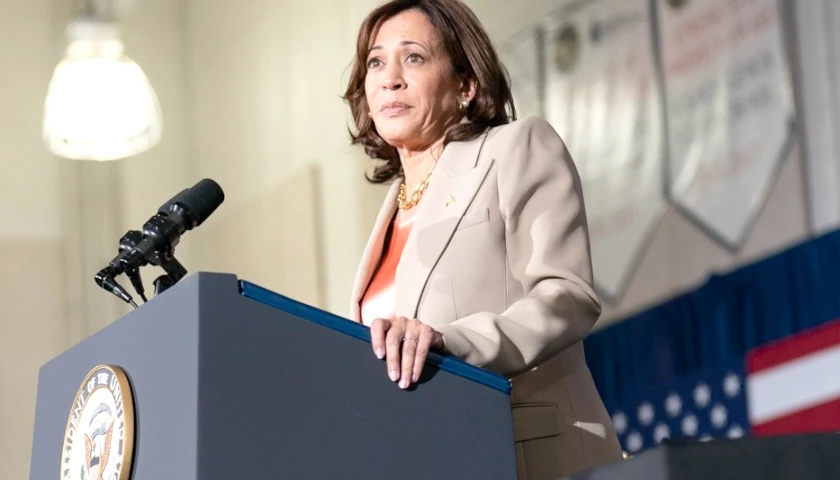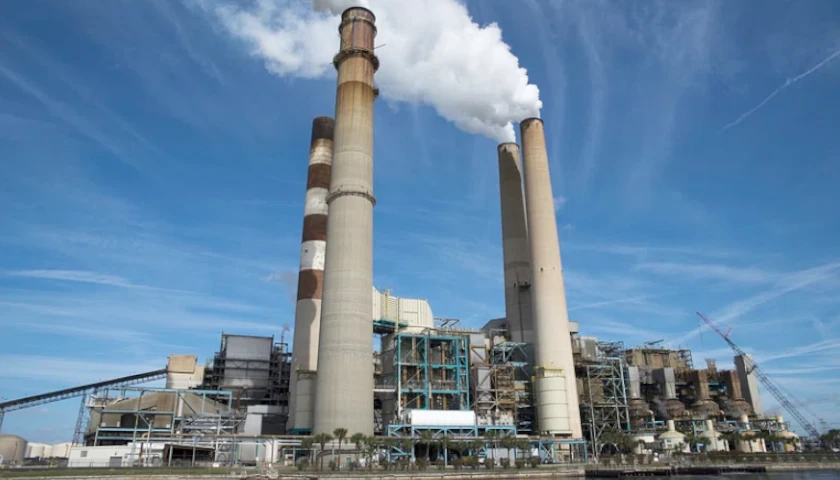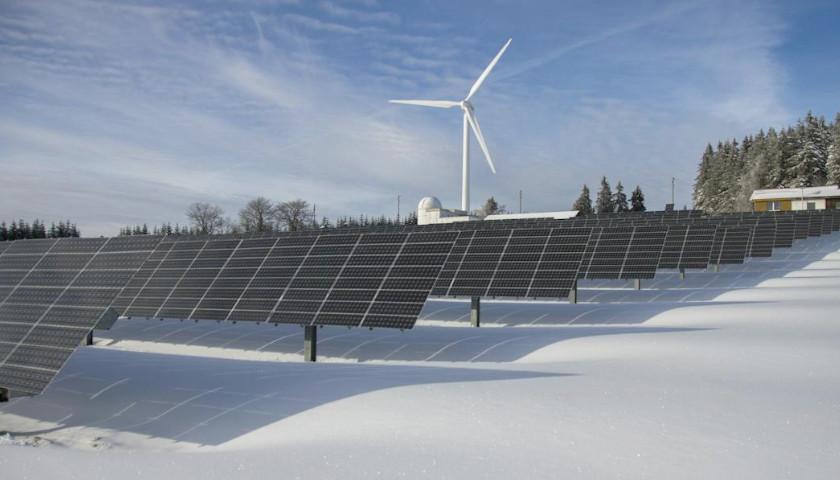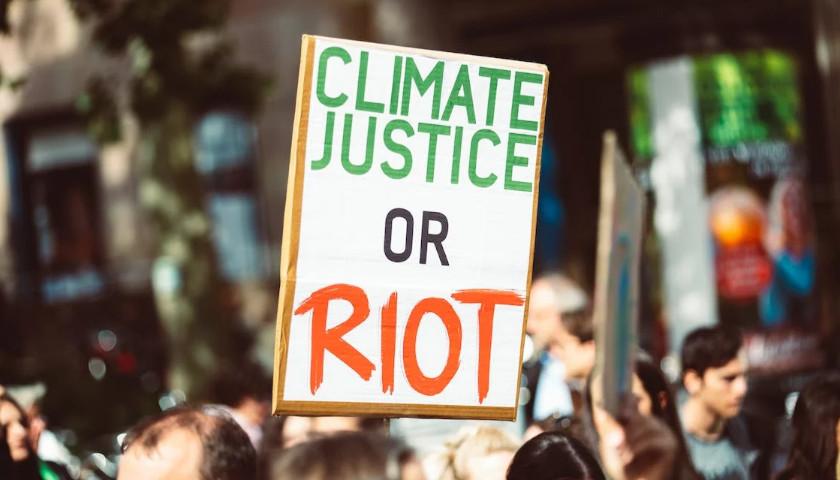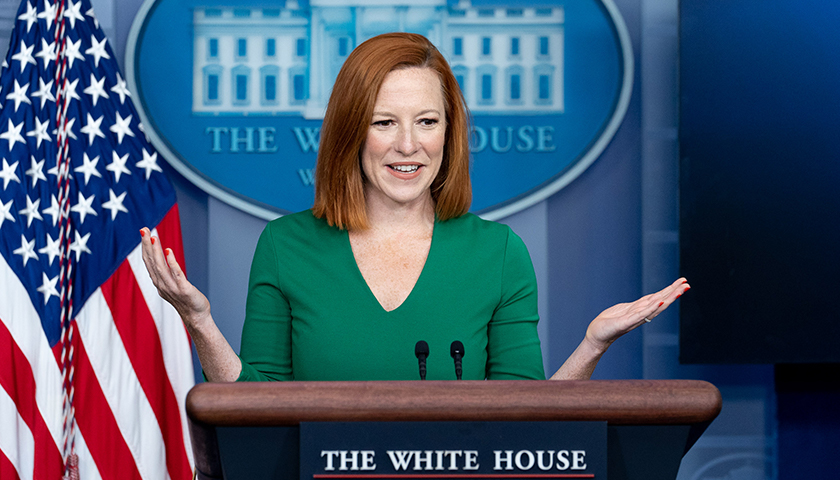Events over the past months have exposed a very stark divide between the globalist, collectivist, “woke” authorities of Europe and the Make America Great Again (MAGA) patriot movement here in the United States. To be frank, it is almost as if the snide, effete elitists who control the nations of the European continent want to rub our noses in their horror show.
Read MoreTag: climate crisis
Kamala Harris Makes Several About-Faces on Key Policies as She Maneuvers to Face Donald Trump
In the weeks since Vice President Kamala Harris became the presumptive Democratic nominee, the California politician has shifted her policies—sometimes quietly, even under the radar —on key issues to distance herself from her liberal past.
White House officials told Politico that these shifts are part of a strategy to undermine the argument that she is a leftist politician, a reputation they believe stems from the positions she took in the 2020 Democratic primary, but which they say do not truly represent Harris’ positions.
Read MoreCommentary: The World Needs Fossil Fuels
It’s summer, and the Sierra Club says: “This is climate change in action. We are living it.”
The United Nations’ secretary-general declares that “a fossil fuel phaseout is inevitable.” And The Lancet, a respected medical journal, insists that nations must swiftly transition away from hydrocarbons.
Read MoreUN Climate Official Warns Only ‘Two Years’ to Save World from Environmental Crisis
A United Nations climate official issued a dire warning by claiming that only “two years” remain to save the world from an environmental crisis.
“When I say we have two years to save the world, it begs the question – who exactly has two years to save the world? The answer is every person on this planet,” UN climate official Simon Stiell said Wednesday during a speech at the Chatham House think tank in London.
Read MoreCommentary: The Delusions of Davos and Dubai Surrounding Wind and Solar Energy
In the most recent “Conference of the Parties,” otherwise known as the United Nations extravaganza that convenes every few years for world leaders to discuss the climate crisis, several goals were publicly proclaimed. Notable were the goals to triple production of renewable energy by 2030 and triple production of nuclear energy by 2050. Against the backdrop of current global energy production by fuel type, and as quantified in Part One, against a goal of increasing total energy production from 600 exajoules in 2022 to at least 1,000 exajoules by 2050, where does COP 28’s goals put the world’s energy economy? How much will production of renewable energy have to increase?
To answer this question, it is necessary to recognize and account for the fact that most renewable energy takes the form of electricity, generated through wind, solar, or geothermal sources. And when measuring how much the base of renewables installed so far will contribute to the target of 1,000 exajoules of energy production per year in order to realize—best-case scenario—800 exajoules of energy services, the data reported in the Statistical Review of Global Energy is profoundly misleading.
Read MoreCommentary: We Know Exactly What ‘De-Development’ Means
by Roger Kimball “The climate crisis,” said Al Gore at the U.N. a couple of days ago, “is a fossil fuel crisis.” “What climate crisis?” you might be asking, and you would be right to do so. Yes, it is impossible to turn anywhere in our enlightened, environmentally conscious world without…
Read MoreCommentary: Climate Alarmism Killed Real Environmentalism
The environmentalist movement is a political weapon. It unites the most powerful special interests in the world behind an agenda that will further centralize power and wealth, eliminate any hope of financial independence for the vast majority of people, and transition previously free and independent nations into managed, sham democracies that have lost their sovereign agency.
The overwhelming theme of environmentalism today, designed to obscure its true agenda, is the alleged “climate crisis.”
Read MoreCommentary: Conservatives File Suit to ‘Derail Biden Climate Railroad’
Michael Regan began his tenure as President Biden’s Environmental Protection Agency administrator by dismissing dozens of outside scientific advisers appointed during the previous administration — part of an effort to “ensure the agency receives the best possible scientific insight to support our work.”
At the time, Regan (pictured) called it a “reset.” Opponents grumbled that it looked more like “a purge.” Now, one of those advisers, Stanley Young, has filed a lawsuit in federal court accusing the agency of violating U.S. law; the suit also seeks an injunction to halt the work of his former committee.
The legal dustup is the latest rearguard action from the right on environmental issues. Conservatives see the case as their best chance to thwart the Biden administration’s multi-agency approach to combating climate change, seen as hostile to the fossil fuel industry.
Read MoreBiden Administration Downplays Rising Energy Prices, Says ‘Climate Crisis’ Is More Important
The White House downplayed surging energy prices in the U.S. and worldwide on Wednesday, arguing that the climate crisis was more important.
“Certainly, we all want to keep gasoline prices low, but the threat of the crisis — the climate crisis — certainly can’t wait any longer,” White House Press Secretary Jen Psaki told reporters Wednesday.
Read More15 Governors Oppose Biden Plan to ‘Conserve’ 30 Percent of All US Land and Water by 2030
Governors from 15 states are sounding the alarm over an executive order issued by President Joe Biden tasking his administration to “conserve” 30% of all land and water in the U.S. by 2030.
Known as the “30 x 30 plan,” the directive is part of a United Nations Agenda 2030 land and sustainable development goal, which directs nations to conserve land and water to combat climate change.
Biden refers to the policy as part of the United State’s acceptance of rejoining the Paris Agreement, a deal former President Donald Trump pulled out of.
Read More

